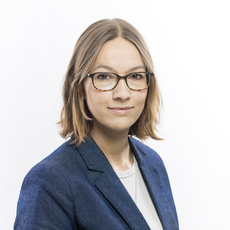The Hasso Plattner Institute-MIT Research Program on Designing for Sustainability is a new research collaboration made official in a signing ceremony in New York City on November 2. The program will drive joint scientific research at both institutes in the areas of sustainable design, innovation, computer science and digital technologies, as well as in the translation of research results into practice.
Through this engagement, HPI and MIT aim to tackle global challenges as expressed in the United Nations Sustainable Development Goals (SDGs). The program will connect faculty and students of both institutions, with the intention of having the greatest possible societal impact.
“This cooperation brings new opportunities for research and our students,” says Christoph Meinel, professor and managing director at HPI as well as head of the department of Internet Technologies and Systems. “It will give impulses to academia as well as into practice. At the same time, it will closely connect PhD students of both institutions through joint research in workshops and exchange programs.”
The collaboration will be administered by the MIT Morningside Academy for Design (MAD), the Institute’s new hub for cross-disciplinary education, research, and innovation, which will ensure the program’s reach across MIT. MAD and HPI will oversee the research funding application process as well as other activities of the program.
“We are very pleased to embark on this significant research initiative with the Hasso Plattner Institute,” says Hashim Sarkis, dean of the MIT School of Architecture and Planning. “Addressing the world’s large-scale societal challenges requires work across disciplines and institutions, and we welcome the opportunity to engage with this leading research center. We are grateful to the Hasso Plattner Foundation for making this collaboration possible.”
Research will be undertaken in the areas of basic and applied design thinking and innovation. Design is understood broadly to include design research & thinking, as well as the use of creativity in addressing challenges in disciplines such as computer science and entrepreneurship, all with consideration of human and social impacts. Funded researchers study the complex interaction between members of multi-disciplinary teams challenged to deliver breakthrough product, service, and business-model sustainable design innovations. Applied design thinking research will focus primarily on topics from among the 17 SDGs, including health, education, energy, and climate action. Innovation research is targeted on the creation of high-impact products and startups (product and venture design) that translate research into practice.
“We are thrilled to collaborate with HPI to apply the power of design to sustainability and digital technologies,” says John Ochsendorf, the Class of 1942 Professor and a professor of architecture and of civil and environmental engineering, and director of the Morningside Academy. “By working together, the research talents of HPI and MIT can accelerate design innovations for a low-carbon economy.”
The HPI School of Design Thinking is Europe’s first innovation school for university students. PhD candidates carry out research at the HPI Research Schools in Potsdam and its branches in Cape Town, Haifa, Irvine, and Nanjing.
“Alongside artificial intelligence, design research is a key driver for innovation in sustainability,” says Ralf Herbrich, professor and managing director of HPI. He also serves as head of the department of AI and Sustainability at HPI and is a member of the steering committee. “Bringing talented PhD students of our two institutions together that are committed to the SDGs will foster breakthroughs in this societally very important area.”
The research collaboration is supported by the Hasso Plattner Foundation and set up over eight years, with an interim evaluation after four years. The funded program will entail semi-annual research workshops, quarterly virtual seminars and an annual student exchange between both institutes.
About MIT
The Massachusetts Institute of Technology in Cambridge, Massachusetts, is world renowned for its leadership in teaching and research in science, technology, and other fields, with an increasing focus on design. The MIT School of Architecture and Planning encompasses research and teaching in architecture, urbanism, art, technology, and design. The MIT Morningside Academy for Design is an interdisciplinary hub for design education, research, and entrepreneurship. The Academy aims to educate future generations in design, foster design innovation, and encourage entrepreneurship to empower individual and collective problem-solving capacity around the globe.
About the Hasso Plattner Institute
The Hasso Plattner Institute (HPI) in Potsdam is Germany's university center of excellence for digital engineering, advancing research and education in IT systems engineering, data engineering, cyber security, entrepreneurship, and digital health. With its bachelor‘s and master’s degree programs, the Faculty of Digital Engineering, established jointly by HPI and the University of Potsdam, offers innovative engineering- and application-oriented study programs. At present, more than 700 students are enrolled in the program. HPI consistently earns a top-notch place in the CHE University Ranking. The HPI School of Design Thinking is Europe’s first innovation school for university students. It is based on the Stanford model of the d.school and offers 300 places annually for a supplementary study. At HPI there are currently twenty-two professors and over 50 guest professors and lecturers. HPI conducts research noted for its high standard of excellence in its IT topic areas. PhD candidates carry out research at the HPI Research Schools in Potsdam and its branches in Cape Town, Haifa, Irvine and Nanjing. The focus of HPI’s teaching and research is on the foundations and applications of large, highly complex and networked IT systems. In addition, HPI concentrates on the development and research of user-oriented innovations for all areas of life.
Contact persons


Last change: 12/09/2024


